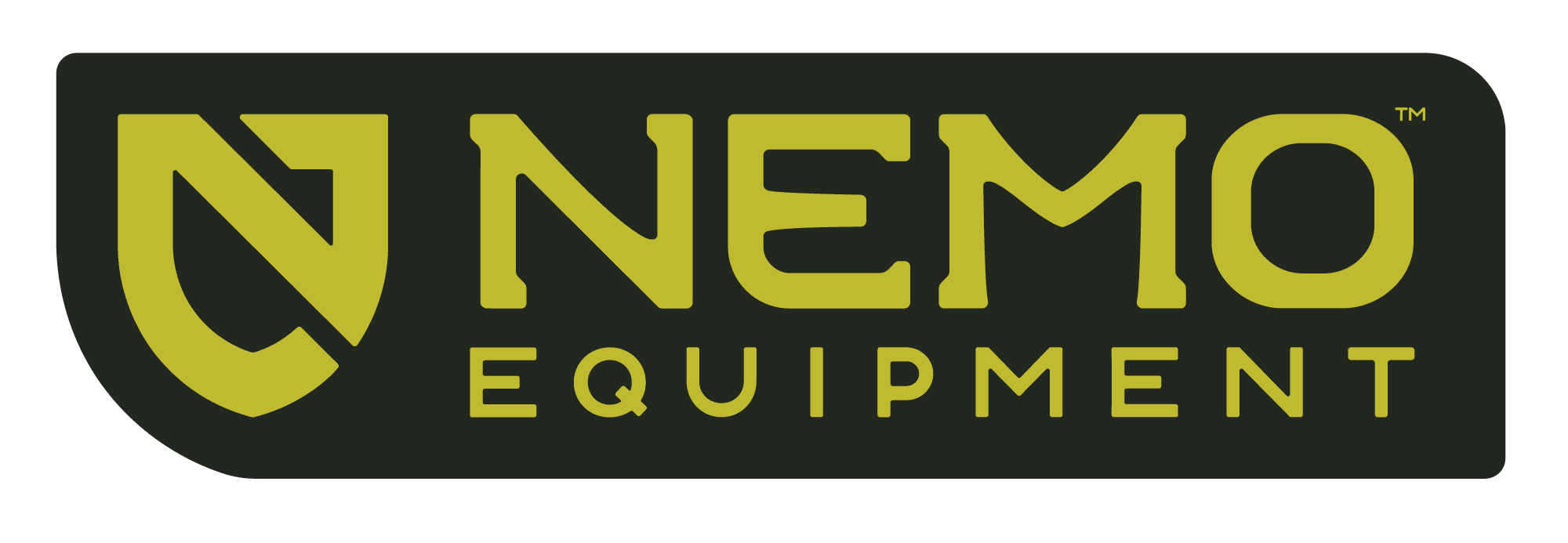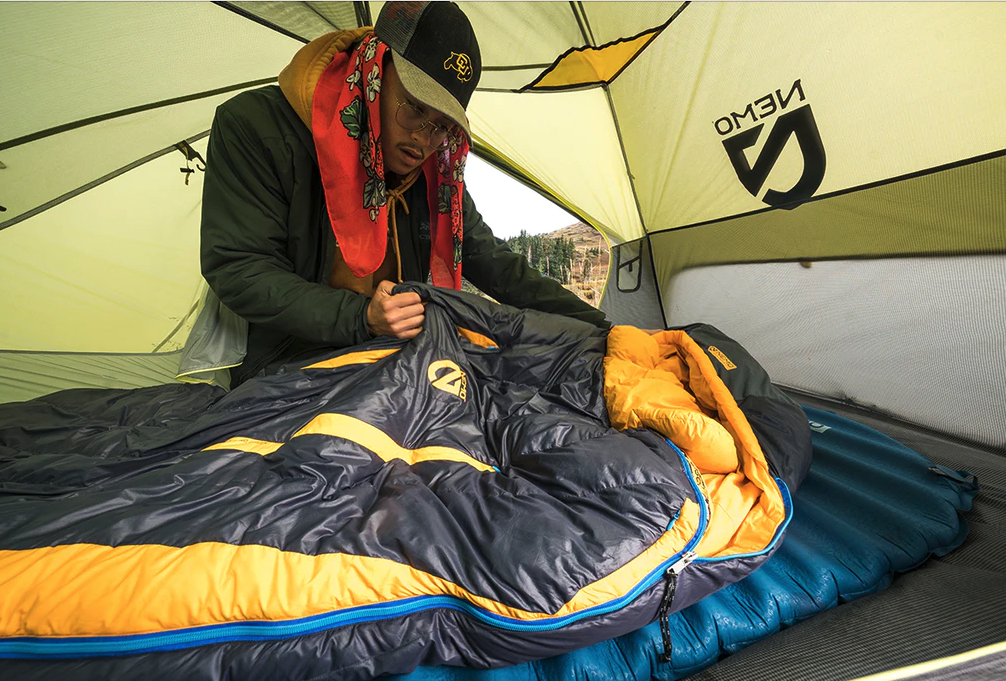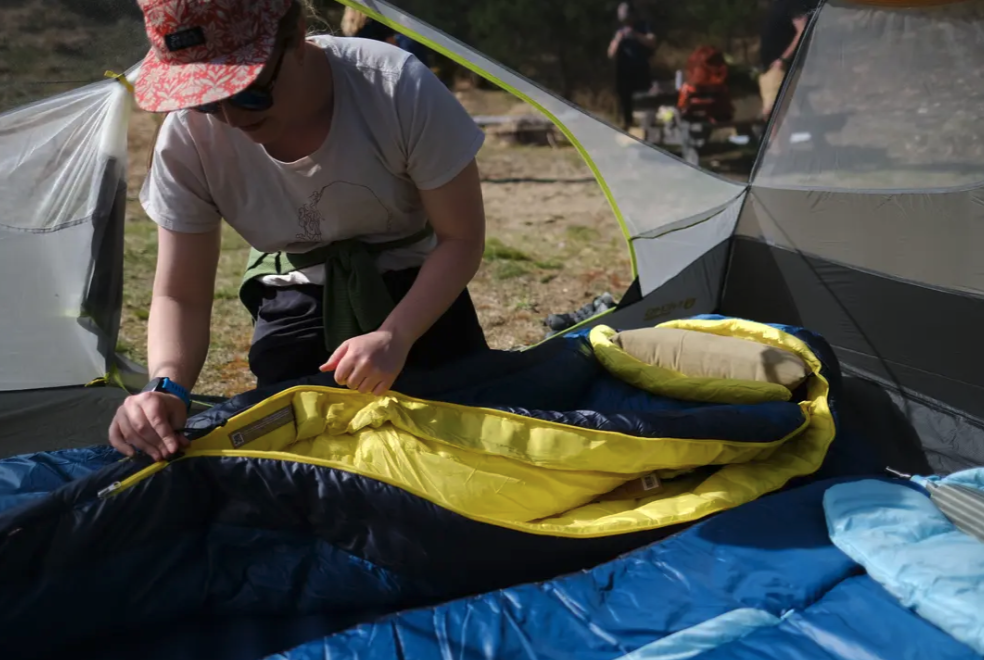
Problem solving, innovation and collaboration are very much at the heart of sustainability. Dover-based NEMO Equipment thinks about this often and has deployed these three pillars as tools to become one of the top specialty camp brands in North America.
“We constantly ask ourselves, ‘Why should this new product exist?’ and the answer should be: to solve a problem,” NEMO’s Director of Sustainability Theresa McKenney tells me on a tour of the company’s headquarters, which is housed in a former mill that has the requisite exposed beams and inspiring photography.
The Flyer™ bluesign® sleeping pad illustrates McKenney’s point. It offers a comfortable, highly durable option for situations where an air pad won’t do — like on an AT thru-hike or other long trek with no “plan B” for gear. The hybrid pad uses a combination of foam and air for cushioning and features recycled materials, adhering to strict safety and environmental standards.
McKenney says the family-owned company has strived for the past 20 years to create an iconic brand that supports adventure anywhere, for anyone, forever — something its customers and employees value. Part of that goal includes minimizing the company’s environmental impact and preserving the natural world for future adventuring.
NEMO’s roots sprouted from a problem-solving ethos. In 2002, Cam Brensinger spent a night in the White Mountains in a lackluster tent that failed its most basic role: providing safe and comfortable shelter. Brensinger knew a better way must exist. As a student at the Rhode Island School of Design, Brensinger decided to develop a tent that not only met his mountaineering needs, but that also comported with his goals of adding value while reducing waste. NEMO seems to have been born from this desire to produce durable and sustainable gear.
NEMO’s approach is to identify a problem related to outdoor experiences, analyze the market, design and develop a solution, test it, and then honor its quality. McKenney says the company prioritizes performance and sustainability at the product conception stage.
There has long been a debate that sustainability is an “either/or” proposition with economic growth. NEMO might find that comical, if the stakes weren’t so high. Indeed, when looking at the company’s annual sustainability report, it’s clear that people, planet and profit are at the core of its actions. Greenwashing–overstating or just plain lying about an organization’s environmental profile–is clearly not practiced at NEMO’s basecamp.
Unzipping the vestibule and peeking at some of NEMO’s products, it’s easy to be inspired. The company's proprietary tent fabric, OSMO, is not only lightweight, durable and recycled, but maintains its core shape, repels water four times better than industry standard and does not require the use of PFAS (forever chemicals) or flame retardant chemicals. McKenney says the company’s drive to innovate led it to develop a novel textile weaving structure, resulting in a top-selling tent that has received rave reviews.
A few months ago, NEMO unveiled its Forte™ Endless Promise™ sleeping bag that is made of recycled materials and is fully recyclable at the end of its life. And to add to that circularity, the company works with REI, one of its larger retailers, to promote the reuse/resale of its products with a gift card incentive.
McKenney says the company is deeply committed to working with others in the industry to identify solutions that an individual entity may not be able to accomplish alone. This collaboration takes many forms, like lobbying in Washington for climate policies with groups such as the Outdoor Industry Association. It is also seen in areas where companies pool resources to achieve a common good. For instance, NEMO, is currently collaborating with other outdoor industry brands to establish solar panels on a manufacturing facility in Vietnam.
As I wind down my interview with McKenney at NEMO’s Dover headquarters, she mentions that the repurposed table we’re sitting at–and many others throughout the office–was handcrafted by CEO Brensinger and company employees, together. That’s team building, with a purpose.
Looking ahead, NEMO recognizes that the sustainability journey is never really done, which motivates it to dig into its toolbox and solve more problems.
GO Sustainable Tip of the Month
When designing a new product or service, harness NEMO’s philosophy and think about performance and sustainability from the start. While you may not always achieve the efficiencies, reductions, or outcomes you are striving for, the process can inspire and inform future actions. It can also lead to collaboration with industry groups, or even competitors, to develop economies of scale that result in wins for all players.
Andrew Schuyler splits his time between Conway, NH and Melrose, MA. He serves on the Board of the White Mountains Interpretive Association and has a background in journalism, clean tech, government affairs and parenting. When he’s not hiking or skiing, he can be found swimming in the Saco River, often in pursuit of his canoe. Reach him at andrewschuyler@hotmail.com.




